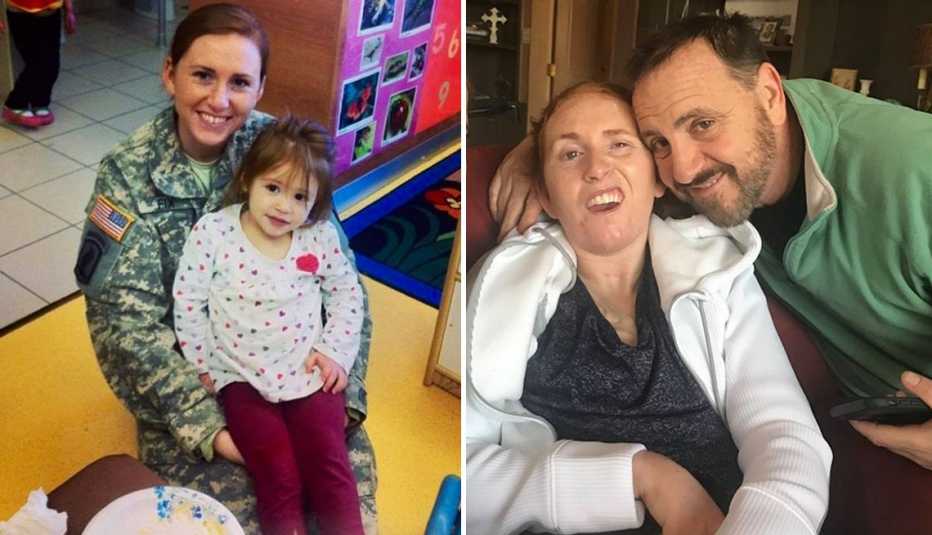Staying Fit


Military caregivers experience higher risks of poor health, strained family relationships and greater financial loss than nonmilitary caregivers. For the 5.5 million caregivers in the U.S. helping military members and veterans, the coronavirus pandemic has exacerbated the stress, according to RAND, a nonprofit think tank.
"If you're caregiving, you're almost always caregiving for somebody who's a higher-risk individual. If you're using other caregivers, that's another point of tension,” says Jim White, 57, caregiver for his daughter, Kimmy Fix, 31. “They're afraid of bringing something in, they're afraid of others working with Kimmy, who might expose them to something."


AARP Membership— $12 for your first year when you sign up for Automatic Renewal
Get instant access to members-only products and hundreds of discounts, a free second membership, and a subscription to AARP the Magazine.
Fix, White's oldest child of nine, was in an auto accident while stationed with the Army in Italy as a Medical Service Corps officer and suffered a traumatic brain injury. She was in a coma for many months, and six years later she remains unable to speak and limited to her bed and wheelchair in Apex, North Carolina.
"We weren't convinced we would be able to provide care at home,” White said. “Actually, one of the nurses at the Richmond Polytrauma Center said ‘You can do this and you can take her home. There's a way to do this.’ And so, we're really glad we did.”
However, the pandemic has placed extra burdens on Fix's around-the-clock caregivers. She is prone to pneumonia, a complication that can stem from the coronavirus, and many of her caregivers have underlying conditions, putting them at risk of severe complications if infected.
"Kimmy actually did get pneumonia. She just came back from the hospital a couple of weeks ago. It was not related to COVID, but she went into a hospital that had COVID in it,” White said.
Instead of being put in the ICU, where she has been during previous bouts of pneumonia, she was placed on a regular floor.
"There were rules that nobody could be in the hospital with her because she's an adult. She couldn't have any visitors,” he said. “My wife was able to kind of talk them into following the pediatric policy, which allowed you to have one person with you."
Since they weren't allowed to trade off at Fix's bedside, Karee White, Jim's wife, was the only person who was able to remain with her.

































































More on Home and Family
The Ultimate Sacrifice: 5 Inspiring Stories About America's Fallen Heroes
Videos feature members of the armed forces who gave their lives and those who honor them
Free Resources to Aid Veterans, Military, Their Families Amid COVID-19 Outbreak
Check out where you can find support for your health and financesSupporting Military, Veteran and Family Caregivers Amid the Pandemic
Five ways to update your caregiving journey during the COVID-19 outbreak